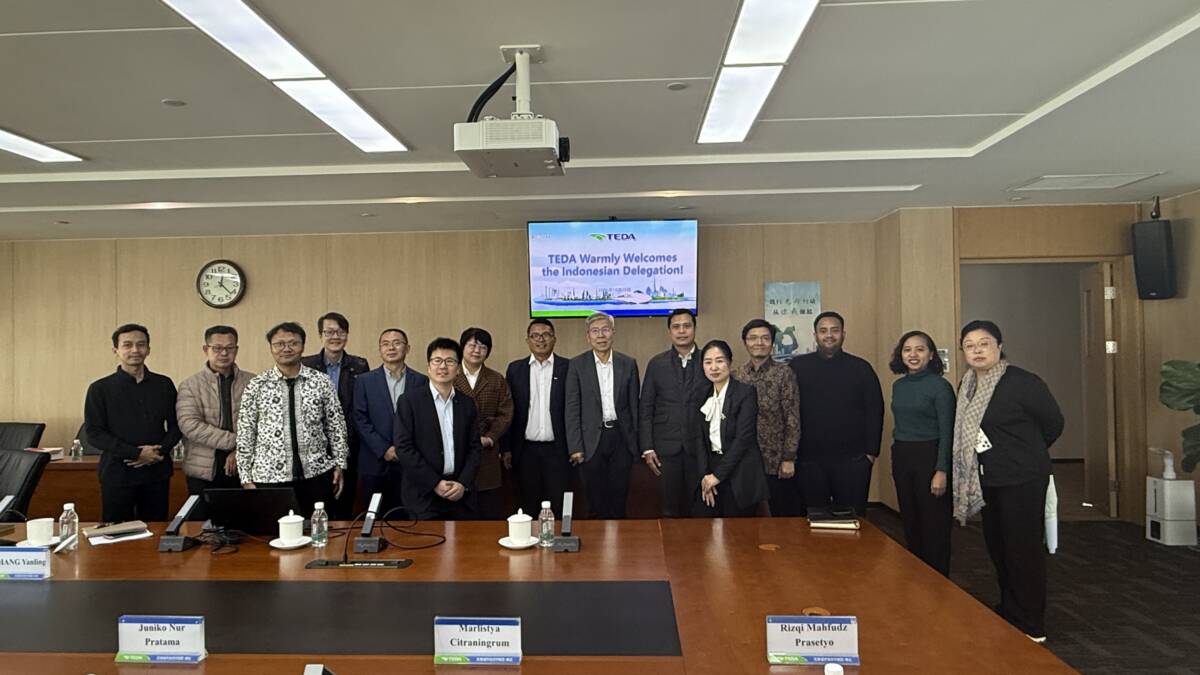Beijing – Tianjin, October 29, 2025 – The Indonesian delegation, consisting of representatives from the Indonesian Industrial Estate Association (HKI), the Ministry of Industry, the Ministry of Investment and Downstreaming/BKPM, and the Institute for Essential Services Reform (IESR), visited the China Center for Information Industry Development (CCID) in Beijing on Wednesday (October 28). CCID is a key research institution under the Ministry of Industry and Information Technology (MIIT). CCID serves as the analytical engine and policy planner for China’s industry, generating over 900 research reports annually that influence the country’s Five-Year Plan. The visit aimed to strengthen the direction of Indonesia’s Industrial transformation towards sustainability.
In the meeting with CCID leadership, the discussion focused on how data-driven research supports the adoption of green technology and the digitalization of manufacturing.
“We learned that the success of modern industrialization in China is not only due to its technology but also to focused policies and strong implementing institutions,” said Hilmy Tanjung, a representative of the Ministry of Investment and Downstreaming/BKPM.
Ardi Pratama, a representative from the Ministry of Industry, also shared the development of the draft Ministerial Regulation on Industry to encourage the implementation of EIP and the consideration of providing facilities for industry players, including proposed financial and non-financial incentives that are currently being reviewed.
This visit provided a crucial lesson that sustainability cannot be achieved solely through projects or investments, but requires an institutional system capable of bridging science, policy, and field implementation.
Exploring TEDA in Tianjin: A Living Laboratory of Industrial Innovation
On the last day, October 29, the Indonesian delegation continued its visit to the Tianjin Economic–Technological Development Area (TEDA), one of the most successful industrial parks in China. Since its establishment in 1984, TEDA has grown to 40,300 hectares and now contributes 14% of the Tianjin City’s GDP. This area serves as a model for how industrial growth can go hand-in-hand with energy efficiency and technological innovation.
During the visit to the TEDA-Veolia Wastewater Treatment Plant, participants witnessed firsthand how wastewater treatment is fully automated using the SCADA system and real-time sensors, with ultraviolet (UV) disinfection technology replacing chlorine. The facility has a capacity of 100.000 m³ per day, serving up to 300,000 residents.
“Seeing how this system works provided a new realization: choosing technology is not merely a technical decision, but a cross-generational investment,” said Didik Prasetiyono, a representative from HKI, sharing his view.
From TEDA, one prominent lesson learned is that the success of an industrial park depends on the synergy between the government, industry, and research. Without long-term planning and continuous innovation, industrial parks will not be able to adapt to global changes or the need for decarbonization.
This visit served as a source of learning and exchange of experiences that the green industrial transformation is not merely about replacing energy sources, but about building a new way of viewing development and industrialization, one that is more measurable, green, and competitive.
Through this exchange, Indonesia can structure an industrial park model that is not only efficient and competitive but also future-oriented by supporting the energy transition, reducing emissions, and opening up green job opportunities.

